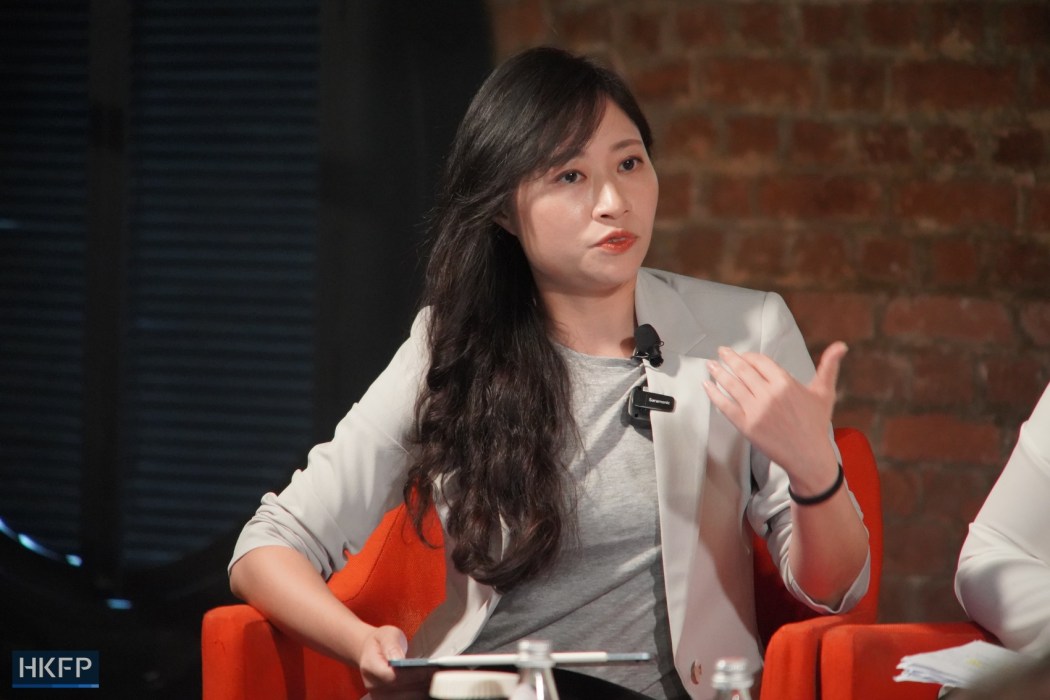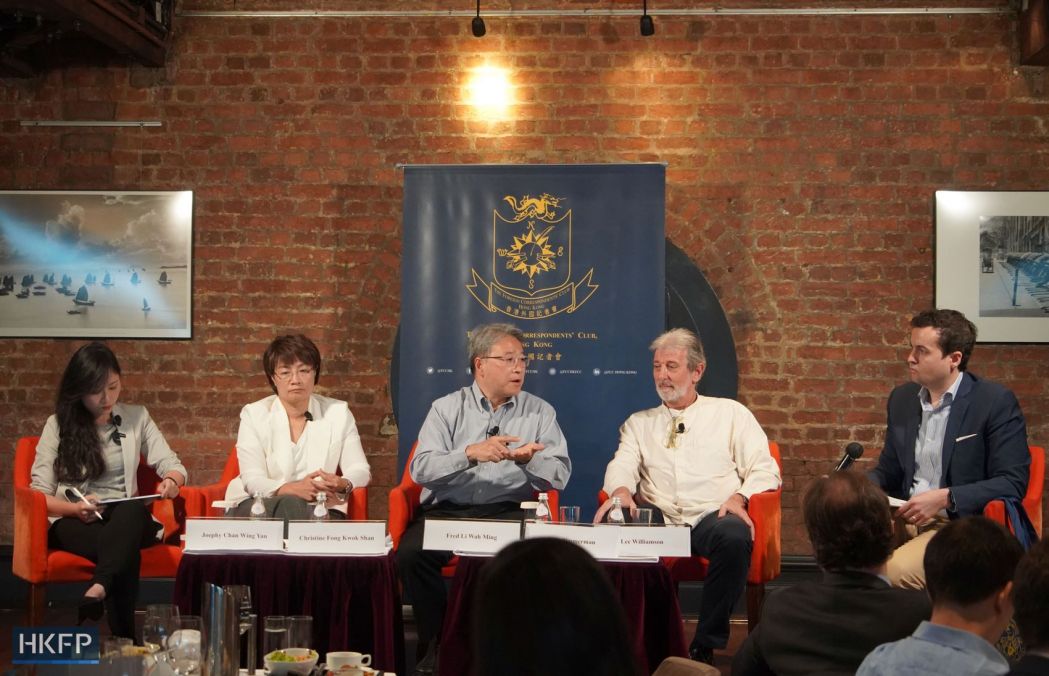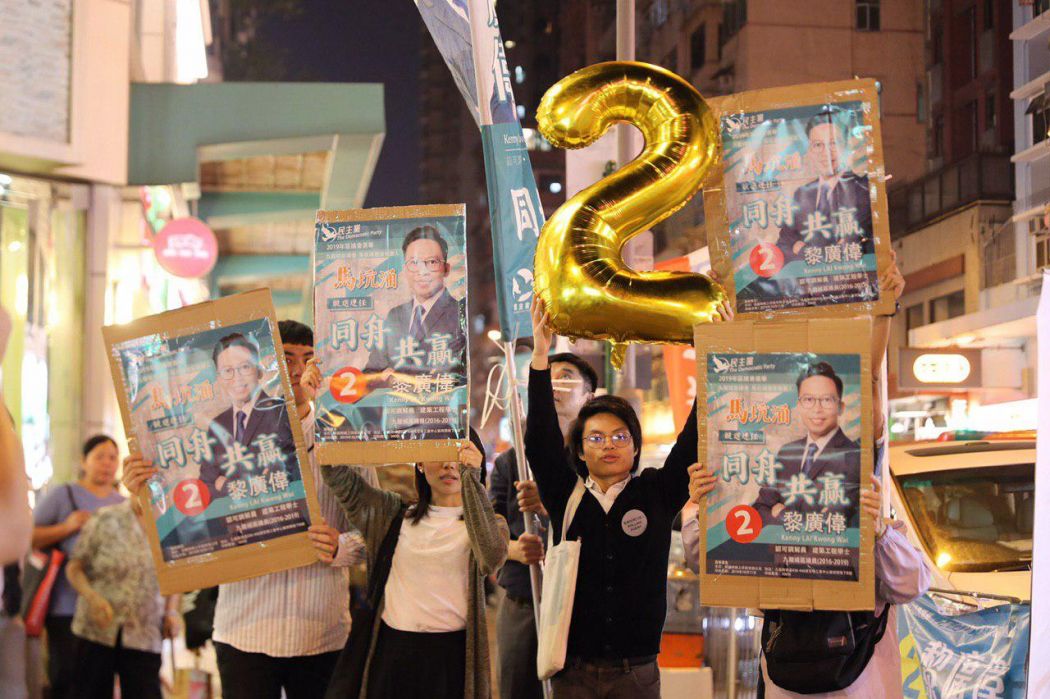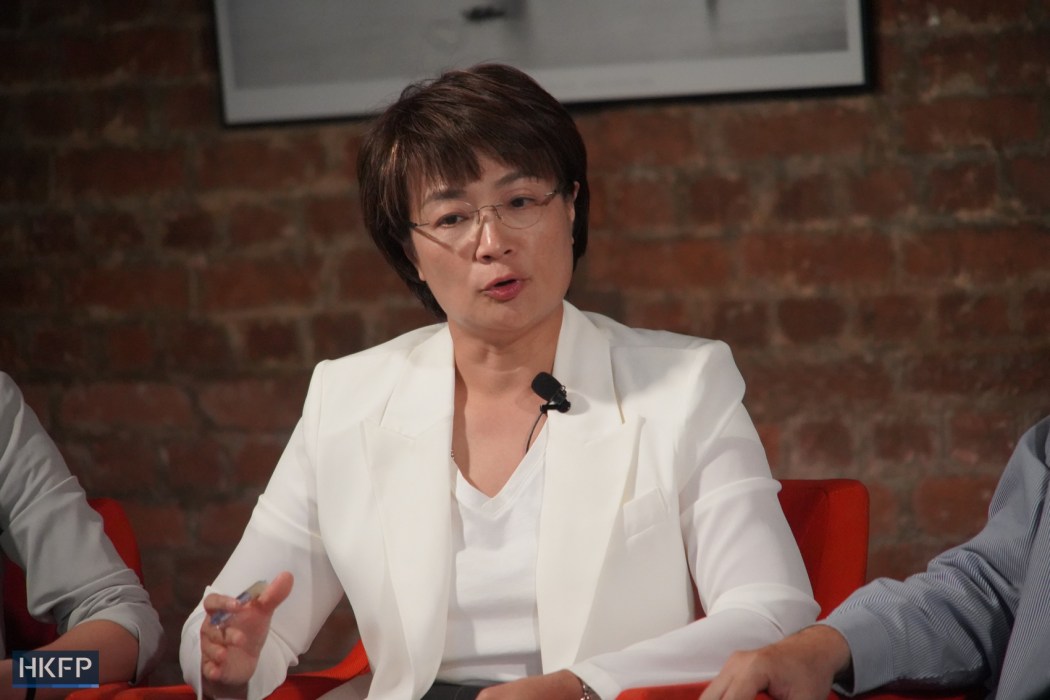Hong Kong should not use “Western values” to evaluate the effectiveness of the city’s District Council, a lawmaker has said.

Joephy Chan, a member of the pro-Beijing party the Hong Kong Federation of Trade Unions said on Wednesday the local bodies were “different from [on] the Western soil.”
“You shouldn’t measure it by Western values and how much it resembles the Western system of politics to decide whether this is the right system of Hong Kong,” she said.
Chan’s comments were made during a lunch panel at the city’s Foreign Correspondents’ Club, which saw speakers invited to discuss the government’s proposal to reform the District Council system.
Authorities announced last month plans “improve” district administration by slashing the number of publicly elected seats to just 20 per cent. The remainder will be appointed by the chief executive or small-circle committees, members of which are appointed by the government.
Currently, the vast majority of the 479 District Council seats – barring 27 which are reserved for rural committee chairs representing New Territories villages – are publicly elected.

Critics of the reforms said the changes would only serve government interests and ultimately hurt residents.
Chan, who served as a District Councillor in Sham Shui Po from 2015 until she was lost as the pro-democracy camp saw a landslide victory in the 2019 race, said the existing system “didn’t work.”
In her experience, some District Councillors had interfered with the bodies’ work by filibustering, she said.
“Of course, I advocate democracy. But this is not the only issue we’re [concerned with] at the moment,” Chan said. “We’re also [concerned with] the efficiency of local district administration.”
Paul Zimmerman, the District Councillor of the Pok Fu Lam constituency and was also part of the panel, said the changes were “a real shame and entirely unnecessary.”
“The losers are the public… and the winners are the bureaucrats because the bureaucrats [won’t] have to justify their actions,” he said.

Zimmerman told residents that the changes would “destroy the final bastion of democracy in Hong Kong” in an email newsletter the next day, and that he would not run again.
Chan accused Zimmerman of “not even let[ting] the government explain the proposal.”
In response to a question from HKFP about what voter turnout might be expected in the reformed elections, Chan said people were more attracted to voting when the society was politically polarised.
“But this is not what we want to see,” she said.
Politicians in the West, Chan added, “tend to motivate and mobilise the people with emotions so that they come out and vote.”
‘I don’t represent any colour’
Hong Kong’s District Council elections are held every four years and traditionally take place in November. The government is yet to announce the arrangements for the coming poll.
Christine Fong, who has served in the Sai Kung District Council since 2008, said during the Wednesday panel talk that she was supportive of the reforms, adding that the appointments could allow “more variety” of experts and professionals from different fields to join the bodies.

“I don’t represent any colour or… organisation, but I represent people,” Fong said.
The veteran District Councillor is the founder of Professional Power, a party that describes itself as “pro-livelihood.”
Fred Li, a former Legislative Councillor and a member of the Democratic Party, said he was elected to the city’s District Board – the predecessor of the District Councils – in 1985.
He said he had “witnessed all the changes” then, as the city experimented with different compositions of the local bodies that included appointed seats.
“My experience with appointed members… they are appointed by the government,” Li said. “Can you expect they will vote against the government? No, never.”
Chief Executive John Lee first said during his Policy Address last October that the government would conduct a “review on district administration” to ensure that local councils are run in line with the city’s “patriots-only” leadership.
Support HKFP | Policies & Ethics | Error/typo? | Contact Us | Newsletter | Transparency & Annual Report | Apps
Help safeguard press freedom & keep HKFP free for all readers by supporting our team

LATEST FROM HKFP
HKFP has an impartial stance, transparent funding, and balanced coverage guided by an Ethics Code and Corrections Policy.
Support press freedom & help us surpass 1,000 monthly Patrons: 100% independent, governed by an ethics code & not-for-profit.










